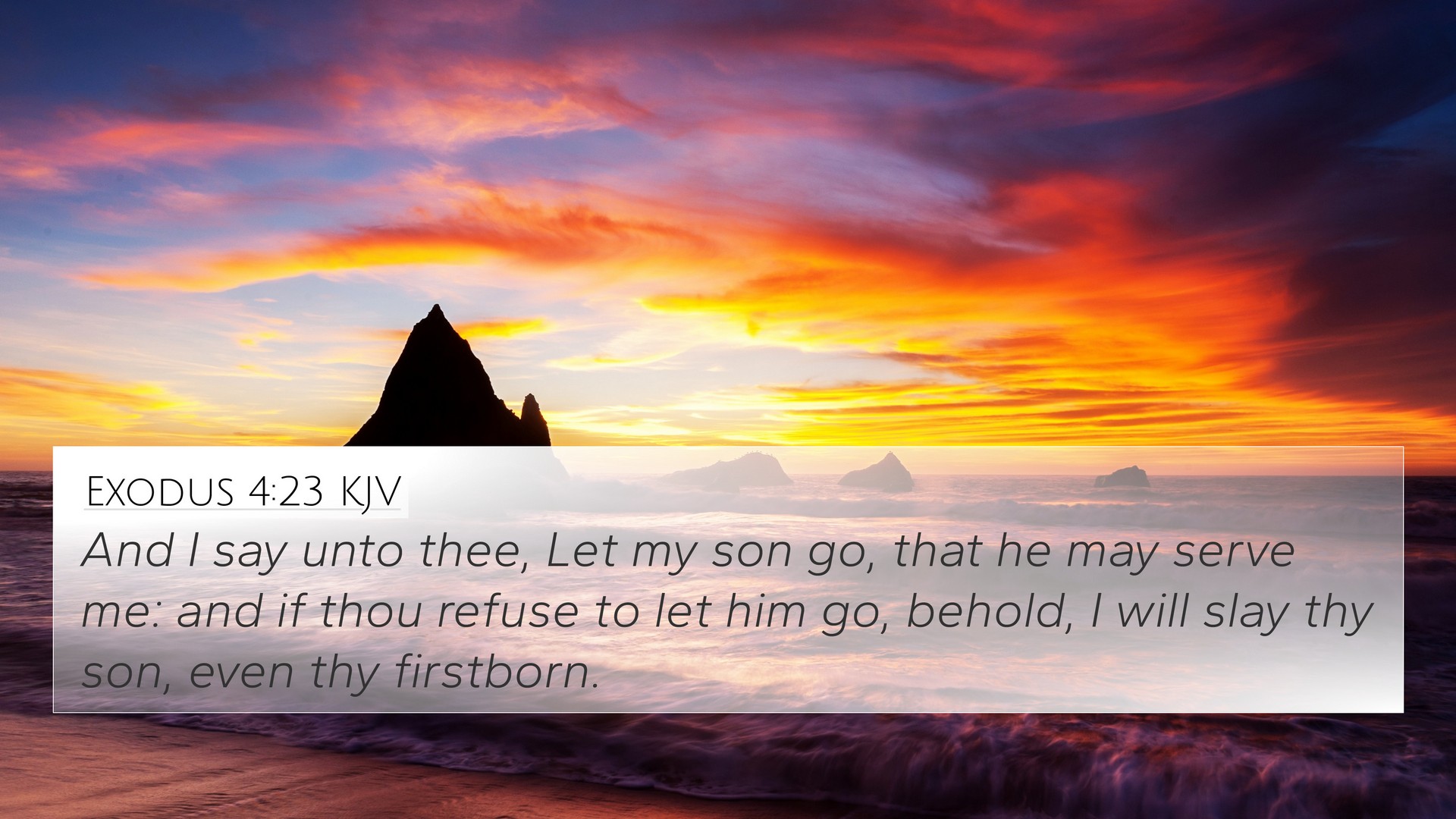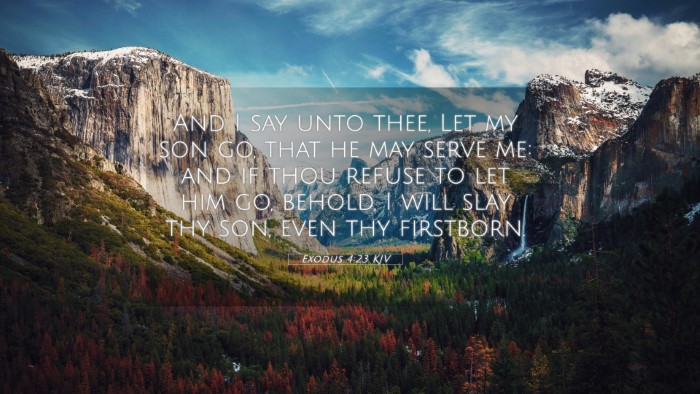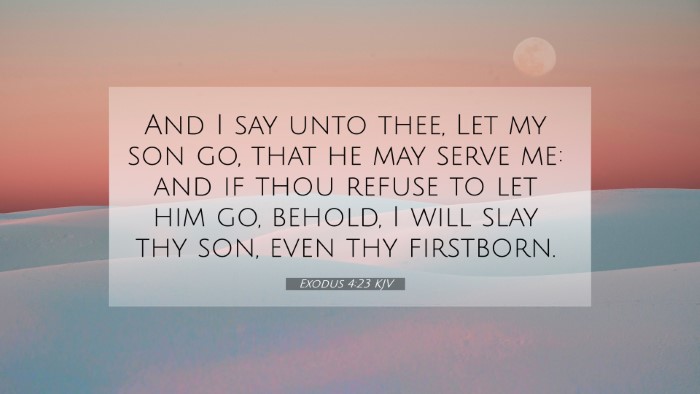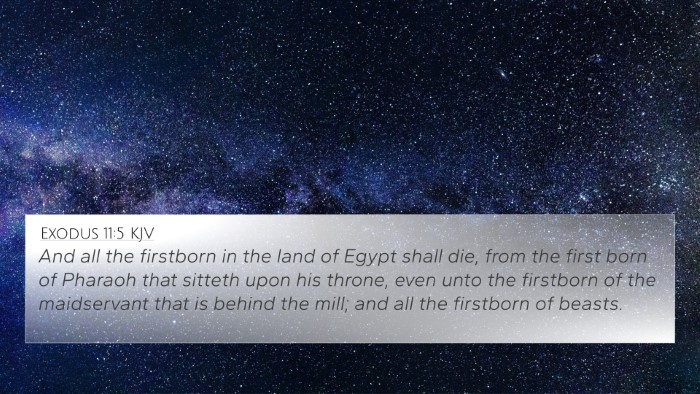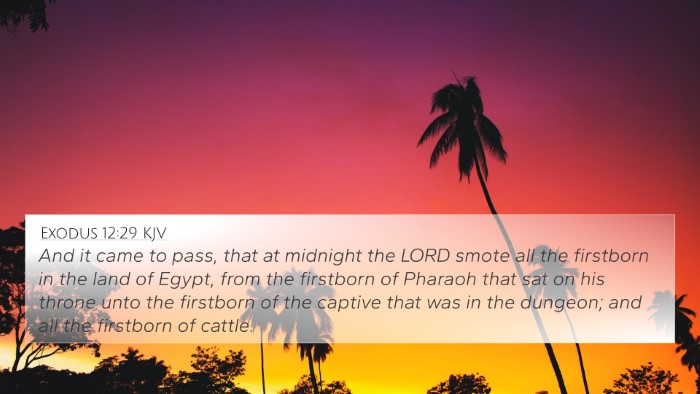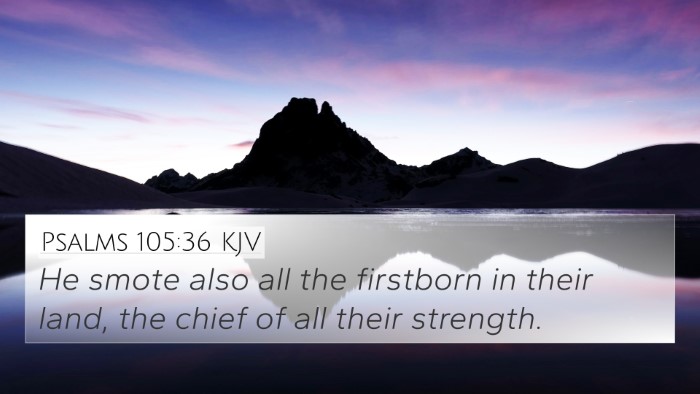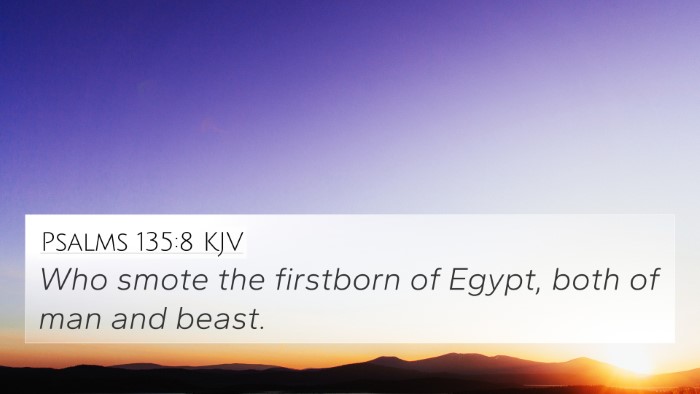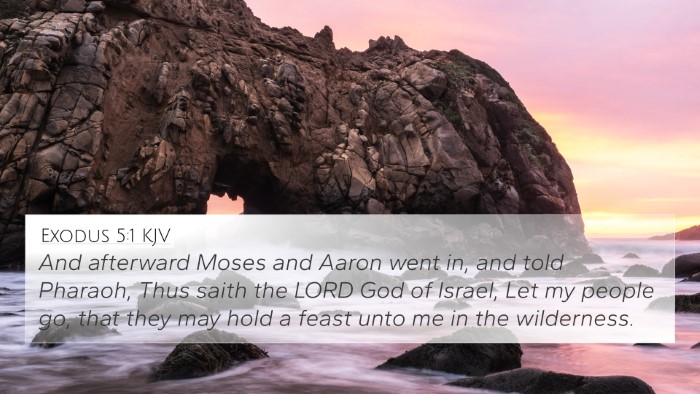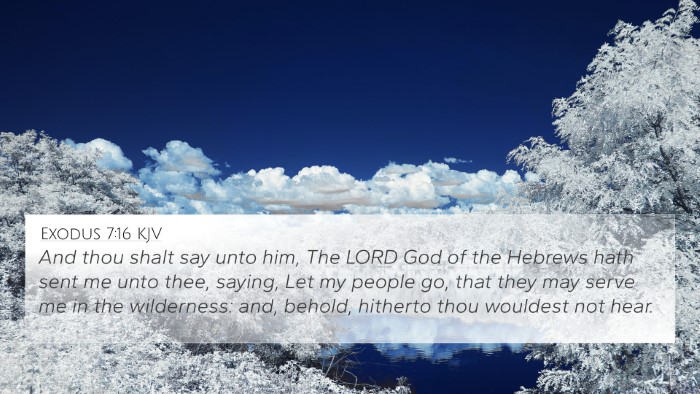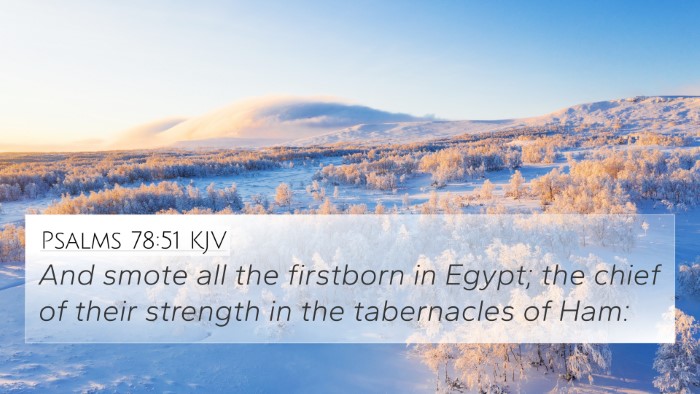Understanding Exodus 4:23
Exodus 4:23 states: "And I say unto thee, Let my son go, that he may serve me: and if thou refuse to let him go, behold, I will slay thy son, even thy firstborn." This verse is part of God's message to Moses, wherein He commands Pharaoh to release the Israelites from bondage. The verse carries profound implications regarding God's authority, the significance of Israel as His firstborn, and the dire consequences of Pharaoh's disobedience.
Meaning and Interpretation
This verse can be analyzed from various commentaries, providing insights into its theological and historical context:
-
Matthew Henry:
Henry emphasizes the urgency of God's command and the special status of Israel. Viewing Israel as God's firstborn signifies their unique relationship. The demand for Pharaoh to let Israel go reflects the overarching theme of liberation and divine judgment. Henry notes the gravity of the warning about the fate of Pharaoh's firstborn, underlining God’s sovereignty and the seriousness of His commands.
-
Albert Barnes:
Barnes discusses the implications of “let my son go” as an assertion of God’s claim over Israel. Barnes connects this request to the eventual judgment upon Egypt, interpreting the slaying of the firstborn as a culmination of Egypt's persistent rebellion against God’s will. This serves as a forewarning of the consequences of disobedience, reinforcing God's power over nations.
-
Adam Clarke:
Clarke expands on the nature of worship and service in this verse, noting that God desires His people to serve Him freely, away from oppression. He interprets the declaration of slaying the firstborn as both a literal threat to Pharaoh and a symbolic representation of the dire consequences of hanging onto the oppression of God’s people.
Cross References
Exodus 4:23 connects to several other verses, establishing a theme of liberation and divine authority. Here are key cross-references:
- Exodus 3:10: God commissions Moses to lead Israel out of Egypt.
- Exodus 12:12: God declares the final plague, the death of the firstborn, indicating divine judgment on Egypt.
- Isaiah 63:9: Reflects God's relationship with His people, portraying Israel as His beloved.
- Matthew 2:15: Joseph's flight to Egypt with Jesus parallel's Moses' story, establishing a theme of divine protection of His chosen ones.
- Romans 8:32: God’s sacrifice and claim over sons resonate with the idea of divine kinship and sacrifice.
- Hebrews 11:28: Highlights the Passover, linking back to God's deliverance plans for Israel.
- Revelation 21:7: Points towards the future hope and inheritance of believers identified as God's children.
Thematic Connections
The significant themes in Exodus 4:23 include:
- Divine Authority: Emphasizes God's sovereignty and right to command nations.
- Judgment and Salvation: Highlights the dual action of judgment on disobedience and the offer of salvation to His people.
- Covenantal Relationship: Establishes the notion of Israel being God's chosen people akin to a firstborn son.
Comparative Analysis
A comparative analysis of this verse with others helps deepen the understanding of its significance:
- Connecting God's commands in Exodus with the prophetic warnings in the Old Testament.
- Examining New Testament references to the Old Covenant and how they reaffirm God's promise to His people.
- Linking the idea of "firstborn" in Exodus to its emergence in the New Testament, particularly regarding Jesus Christ as the firstborn of all creation (Colossians 1:15).
Tools for Studying Cross References
For deeper understanding, engaging in resources such as a Bible concordance or a Bible cross-reference guide can aid in identifying relationships and themes across scripture. Such tools enhance the study of biblical texts through:
- Cross-reference Bible study: Utilizing references found within various translations to explore thematic connections.
- Identifying connections between the Old and New Testament: Understanding how themes and promises are fulfilled through Christ.
- Cross-referencing Bible study methods: Employing systematic approaches to observe parallels and contrasts between scriptures.
In conclusion, Exodus 4:23 embodies a significant moment in the biblical narrative, illustrating God's call for deliverance and the consequences of disobedience. By engaging in comparative analysis and utilizing cross-referencing tools, one can deepen their understanding of this text's meaning and its place within the larger framework of scripture.
